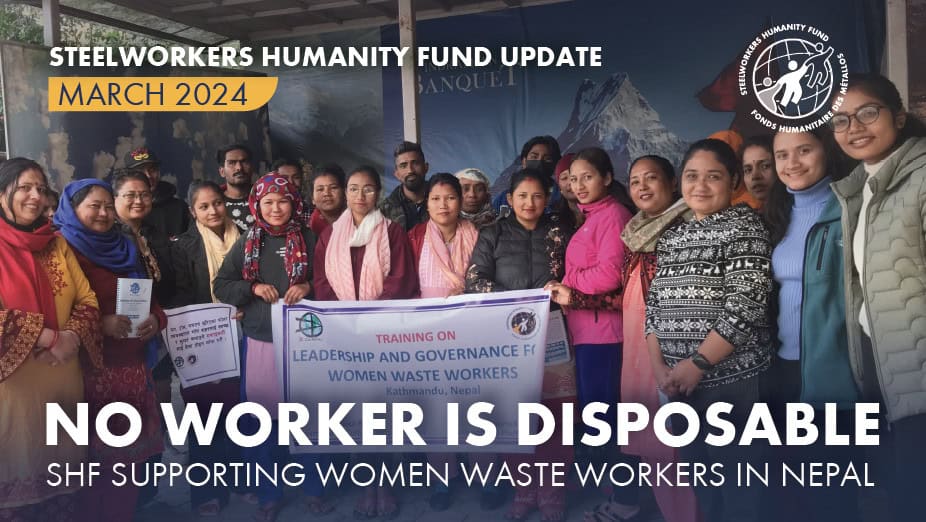
Decent wages and health and safety at work are universal aspirations for all workers. For women, these rights can be more challenging to obtain when you confront a culture of patriarchy and gender inequity that has created systemic barriers for female workers.
However, women in our union have demonstrated that not only do we have the power to lead the fight for better working conditions, raise the bar on women’s health, and demand the implementation of Pay Equity laws, we can also take action in solidarity with women workers in other countries facing more challenging contexts.
Last summer, the Steelworkers Humanity Fund invited organizations from around the world to submit proposals for projects supporting women working in predominantly male environments. A small volunteer panel of USW female members from each district reviewed, scored, and made the final selections for awarding funding.
The Institute of Cultural Affairs (ICA) is a Nepalese non-profit organization that wants to safeguard the rights and well-being of workers, primarily women, employed in waste management services. It presented a compelling project to enhance the rights and safety of workers involved in waste management.
In this mountainous country of South Asia, women workers perform an essential role in waste management in the capital, Kathmandu. Their work sorting waste before it reaches landfills often goes unnoticed, unappreciated and at a significant cost to their health. Workers like 32-year-old Nesha earn 90 dollars a month at transfer stations for unloading, handling, separating, and loading again all discarded items, including organic waste repurposed for pig farming. Nesha’s work, like that of other female waste workers, is physically demanding and dangerous. Using personal protective gear is sometimes not available or uncomfortable to wear. Training is not provided while workers are at constant risk of interacting with hazardous materials.
Despite their significant services to the environment, women waste workers in Nepal do not receive legal protections or benefits from the government or employers. For this reason, ICA’s project aims to strengthen women’s leadership skills in waste and landfill sites, supporting organizing efforts that improve wages, labour rights, health and safety. Through training and community facilitation, over 120 waste workers participate in education sessions covering occupational health and safety, social protection regulations and leadership building to advocate for their rights and challenge workplace discrimination. The aspiration is for workers to be organized in a solidarity network in collaboration with the General Federation of Nepalese Trade Unions (GEFONT) and others, bringing together over 500 female waste workers.
Initiatives like this demonstrate our union’s capacity to support the advancement of workers’ rights internationally and where most needed. International Women’s Day reminds us that women workers are leading in industrial and essential sectors regardless of the setting. They continue striving for secure and improved conditions, recognition, and equal value for their work.
DownloadRequest this file in a different format
